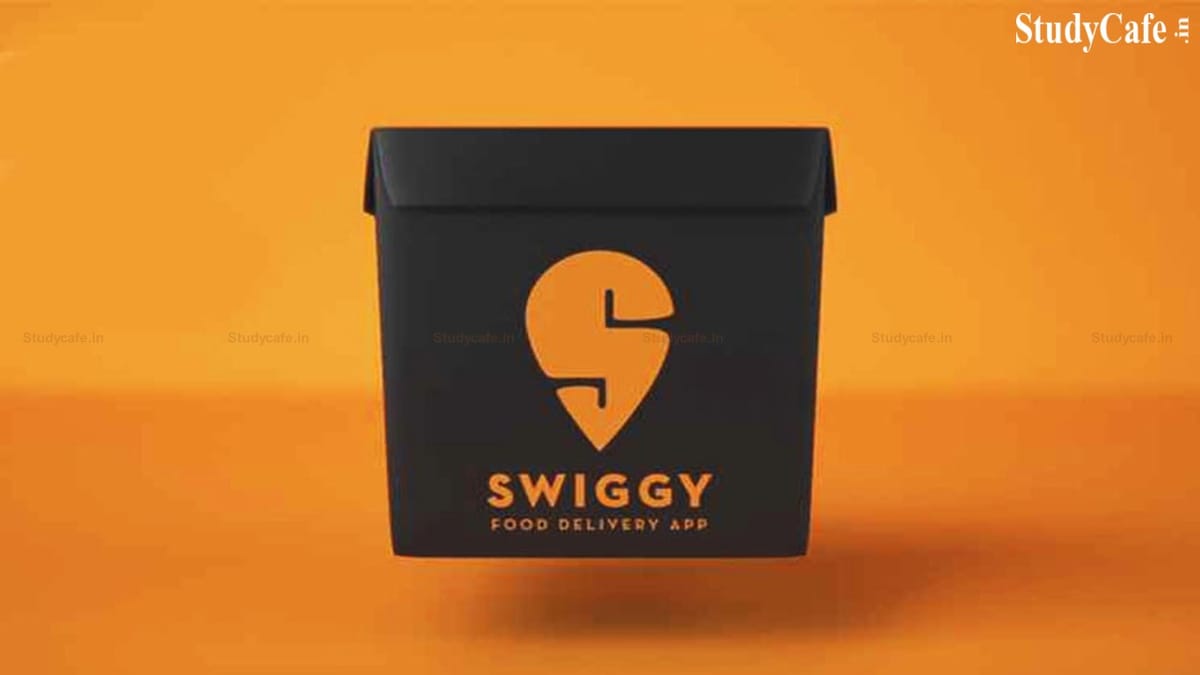Rs. 27 Crore GST Refund to Swiggy: Orders Karnataka High Court
Nilisha | Mar 16, 2022 |

Rs. 27 Crore GST Refund to Swiggy: Orders Karnataka High Court
The online food ordering and delivery platform, Swiggy came under media interest when the High Court of Karnataka ordered the Goods and Services Tax department to refund Swiggy Rs. 27 crore in unpaid taxes. A case was registered under the title ‘Union of India and Ors. v. M/s Bundl Technologies Pvt. Ltd.’; where the Division Bench of Justice Alok Aradhe and Justice M. G. S. Kamal, in dismissing the Central Government’s appeal, noted,
“Article 265 of the Constitution mandates that Tax Collection must be by the Authority of Law.”
The Court went on to observe that, collecting a tax without the authority of the law would be comparable to depriving a person of his property without the authority of the law, as well as infringing on his constitutional right under Article 300A.
The High Court of Karnataka also observed that, “The only provision which permits deposit of an amount during the pendency of an investigation is section 74(5) of the CGST Act, which is not attracted by the factual situation of the case.” Therefore, it is evident that the amount has been collected from the company in violation of Article 265 and 300-A of the Constitution.”
The respondent administers an e-commerce business under the brand name “Swiggy,”. Consumers can place orders for food delivery from neighbouring restaurants through delivery partners, which include both the company’s own pick-up and delivery partners (PDPs) and third-party service providers’ temporary delivery executives (Temp Des).
During regular operations, the PDPs are in charge of the deliveries, which account for 90% of all food deliveries. However, during peak periods such as the holidays, festive seasons or weekends, the company hires Temp Des from third-party service providers to handle the sudden increase in food orders.
Third-party service providers bill the company for the compensation paid to temp Des, plus a 5.5–10% markup plus GST on the total compensation. Swiggy entered into an agreement with Green Finch Team Management (P) Ltd, a third-party service provider. Green Finch provided temporary Des to the company on a cost-plus basis and charged GST on the entire sale amount under the agreement.
Green Finch sent the company proper tax invoices and charged applicable GST, which was paid to Green Finch and filed with the Department by filing a GSTR-3B form. In accordance with Section 16 of the Central Goods and Services Tax, 2017, the company received an input tax credit.
The Director General of Goods and Services Tax Intelligence (DGGI) launched an investigation into services provided to the company by third-party service providers, namely Green Finch, on the grounds that Green Finch was a non-existent entity and, as a result, the company’s input tax credit and the GST component paid to Green Finch against Green Finch’s invoices were fraudulent.
Officers from theGoods and Services Tax department entered the company’s premises and the DGGI Officers issued summonses to the company’s directors and workers during the investigation, the statements of such workers and directors were recorded by the DGGI Officers. The corporation made a deposit of Rs. 15 crore under the GST cash ledger.
Swiggy’s board of directors were summoned to appear before the DGGI headquarters. Mr.HarshaMajety, Mr.Bharat Arora, Director (Finance and Accounts), Mr.Mehul Shah, Senior Manager (Taxation), and Mr.G. Prahalad, Advocate, were among the Company’s Directors who paid a visit to the DGGI’s office. At around 1 a.m., the company’s officers paid a further payment of Rs. 12,51,44,157 to secure the release of three of the company’s directors. During the course of the investigation, a total of Rs. 27,51,44,157 was illegally collected from the company under intimidation and coercion without following the CGST Act’s procedures.
Appellant’s Contentions:
According to counsel for the appellants/Goods and Services Tax department Finch is a non-existent firm, according to the Department, and the corporation is receiving a large input tax credit. Because the responder did not get any services from Green Finch or its inward suppliers, it is not eligible for an input tax credit.
Respondent’s Contentions:
The Senior Counsel for the respondent, argued that Greenfinch is a legitimate firm that has secured GST registration from the Department, as evidenced by the official website of the Ministry of Corporate Affairs.
Judgement:
According to the Single Judge Bench of Justice S. Sunil Dutt Yadav, the payment of the money made by Swiggy throughout the course of the investigation was involuntary. The Court stated that it did not wish to impose any restrictions on the Department’s officers’ investigative powers. The right to seek a refund of the sum placed by the corporation, on the other hand, was determined to be separate from the investigative process, and the two could not be linked. As a result, the writ petition was dismissed, with the instruction that the court review and issue appropriate orders on the company’s reimbursement request within four weeks of the date of the release.
The division bench cited the Gujarat High Court’s ruling in M/s Bhumi Associate v. Union of India, in which guidelines were established to control the powers of officials conducting searches and seizures and to protect the assessee’s rights. The money was not freely paid, according to the court, because the agency did not follow the requirements.
In case of any Doubt regarding Membership you can mail us at [email protected]
Join Studycafe's WhatsApp Group or Telegram Channel for Latest Updates on Government Job, Sarkari Naukri, Private Jobs, Income Tax, GST, Companies Act, Judgements and CA, CS, ICWA, and MUCH MORE!"